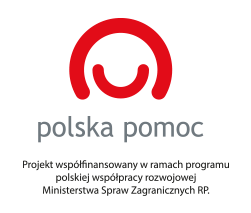While conducting the anti-violence activities in Georgia we realized that domestic violence, which is one of the biggest social problems of this country, is among others a consequence of low level of awareness and lack of proper education. And that’s not only the case with less educated part of society, but also with specialists and representatives of professions of public trust.
Policemen who completed our training admitted that for many of them it was the first course in the field of domestic violence. Part of the officers had very stereotypical views on women’s role and blamed only them for situations when domestic violence occurred.
Teachers emphasized that there is no access to information regarding the proper reaction to violence and chaos of competences, which consequently makes many teachers too afraid to react to signals regarding domestic violence, as they don’t have sufficient knowledge in this field.
We approached also doctors with questions related to domestic violence problems: 60 % of the responders were not aware of their obligation to report any domestic violence cases of their patients. 90% didn’t know that they could face a punishment for failing to react. Doctors had also no competences in terms of conversation with a person experiencing violence. Lack of understanding the mechanisms of this phenomenon deprived them of empathy and compassion for the victims. All this called for filling the systemic gaps through a comprehensive educational program, aimed at raising the competences of the representatives of services and professions of public trust, such as policemen, doctors, teachers or the operators of emergency line 112.
trained doctors, policemen, operators of 112 emergency line and teachers
students and teachers participated in a nationwide education campaign about domestic violence
psychologists developed their competences in the field of therapeutic work with the perpetrators of domestic violence
We conducted our training throughout the whole country, raising the competences of policemen, teachers, doctors and issuing publications which describe the phenomenon of domestic violence and the ways of reacting. During the trainings, the participants learnt not only what domestic violence is and how to respond to it. They also learnt, how to cope with difficult emotions and what are the consequences of domestic violence both from the perspective of the perpetrator and the victim.
We prepared also a guidebook for the health care staff. It was issued in 500 copies and given out to the persons who participated in our trainings.
Yet another task was training a group of Georgian psychologists in order to raise their competences in the area of therapy for the perpetrators. In the systemic solutions suggested by HumanDoc, we notice the necessity to help people experiencing domestic violence, the need to educate specialists and representatives of professions of public trust, but also the need to work with people who use violence. Only with such comprehensive actions can we create real changes.
In the training by HumanDoc participated psychologists who work with the perpetrators of violence on a daily basis.
The trainings are the first event of such kind addressed to the perpetrators in Georgia regarding their therapy. Until now, only psychologists working in prisons had access to such trainings.
